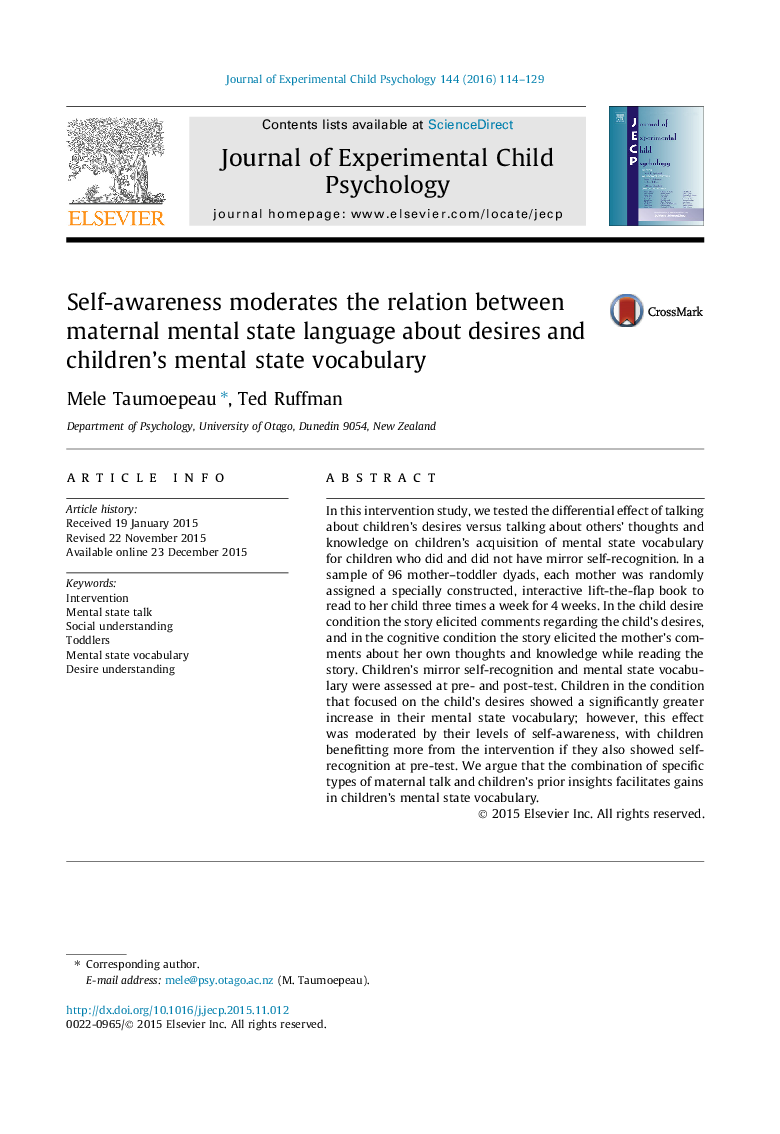| Article ID | Journal | Published Year | Pages | File Type |
|---|---|---|---|---|
| 917869 | Journal of Experimental Child Psychology | 2016 | 16 Pages |
•We randomly assigned mother–child dyads to one of two book reading conditions.•Book reading conditions focused on either the child’s desires or the mother’s cognitions.•We assessed children’s mirror awareness and their mental and non-mental state vocabulary.•Children in the desire condition who were self aware made greater gains in mental state vocabulary.
In this intervention study, we tested the differential effect of talking about children’s desires versus talking about others’ thoughts and knowledge on children’s acquisition of mental state vocabulary for children who did and did not have mirror self-recognition. In a sample of 96 mother–toddler dyads, each mother was randomly assigned a specially constructed, interactive lift-the-flap book to read to her child three times a week for 4 weeks. In the child desire condition the story elicited comments regarding the child’s desires, and in the cognitive condition the story elicited the mother’s comments about her own thoughts and knowledge while reading the story. Children’s mirror self-recognition and mental state vocabulary were assessed at pre- and post-test. Children in the condition that focused on the child’s desires showed a significantly greater increase in their mental state vocabulary; however, this effect was moderated by their levels of self-awareness, with children benefitting more from the intervention if they also showed self-recognition at pre-test. We argue that the combination of specific types of maternal talk and children’s prior insights facilitates gains in children’s mental state vocabulary.
